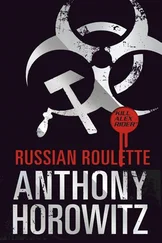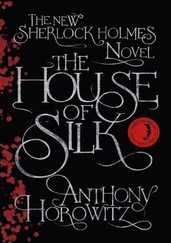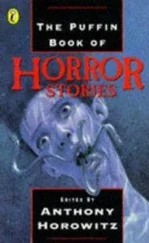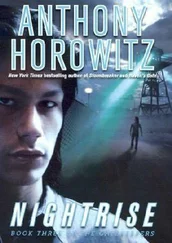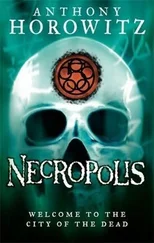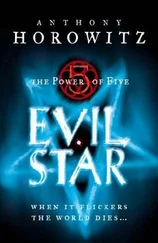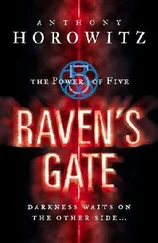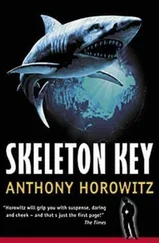Alex took all this in with one glance. He looked at Sabina. She was staring with a mixture of emotions on her face.
And then the security guard was there. “You"re not meant to come into the bank this way,” he said. “This is a staff entrance. Now, I want you to leave before you get yourself into real trouble.
I mean it! I don"t want to have to call the police, but that"s my job.”
“We"re going.” Sabina had stepped in and her voice was cold, definite. “Sab—”
“We"re going now.”
“You ought to look after your friend,” the security guard said. “He may think this sort of thing is funny, but it isn"t.”
Alex left—or rather allowed Sabina to lead him out. They went through a revolving door and out onto the street. Alex wondered what had happened. Why had he never seen the bank before?
Then he realized. The building was actually sandwiched between two streets with a quite separate front and back. He had always entered from the other side.
“Listen—” he began.
“No. You listen! I don"t know what"s going on inside your head. Maybe it"s because you don"t have parents. You have to draw attention to yourself by creating this … fantasy! But just listen to yourself, Alex! I mean, it"s pretty sick. Schoolboy spies and Russian assassins and all the rest of it…”
“It"s got nothing to do with my parents,” Alex said, feeling anger well up inside him.
“But it"s got everything to do with mine. My dad gets hurt in an accident—”
“It wasn"t an accident, Sab.” He couldn"t stop himself. “Are you really so stupid that you think I"d make all this up?”
“Stupid? Are you calling me stupid?”
“I"m just saying that I thought we were friends. I thought you knew me…”
“Yes! I thought I knew you. But now I see I was wrong. I"ll tell you what"s stupid. Listening to you in the first place was stupid. Coming to see you was stupid. Ever getting to know you … that was the most stupid thing of all.”
She turned and walked away in the direction of the station. In seconds she had gone, disappearing into the crowd.
“Alex…” a voice said behind him. It was a voice that he knew.
Mrs Jones was standing on the pavement. She had seen and heard everything that had taken place. “Let her go,” she said. “I think we need to talk.” SAINT OR SINGER?
« ^ »
he office was the same as it had always been. The same ordinary, modern furniture, the same view, the same man behind the same desk. Not for the first time, Alex found himself wondering about Alan Blunt, head of MI6 Special Operations. What had his journey to work been like today? Was there a suburban house with a nice, smiling wife and two children waving goodbye as he left to catch the tube? Did his family know the truth about him? Had he ever told them that he wasn"t working for a bank or an insurance company or anything like that, and that he carried with him—perhaps in a smart leather case, given to him for his birthday—files and documents full of death? Alex tried to see the teenager in the man in the grey suit. Blunt must have been his own age once. He would have gone to school, sweated over exams, played football, tried his first cigarette and got bored at weekends like anybody else. But there was no sign of any child in the empty grey eyes, the colourless hair, the mottled, tightly drawn skin. So when had it happened?
What had turned him into a civil servant, a spy-master, an adult with no obvious emotions and no remorse?
And then Alex wondered if the same thing would one day happen to him. Was that what MI6
were preparing him for? First they had turned him into a spy; next they would turn him into one of them. Perhaps they already had an office waiting with his name on the door. The windows were closed and it was warm in the room, but he shuddered. He had been wrong to come here with Sabina. The office on Liverpool Street was poisonous, and one way or another it would destroy him if he didn"t stay away.
“We couldn"t allow you to bring that girl here, Alex,” Blunt was saying. “You know perfectly well that you can"t just show off to your friends whenever—”
“I wasn"t showing off,” Alex cut in. “Her dad was almost killed by a bomb in the South of France.”
“We know all about the business in Saint-Pierre,” Blunt murmured.
“Do you know that it was Yassen Gregorovich who planted it?” Blunt sighed irritably. “That doesn"t make any difference. It"s none of your business. And it"s certainly nothing to do with us!”
Alex stared at him in disbelief. “Sabina"s father is a journalist,” he exclaimed. “He was writing about Damian Cray. If Cray wanted him dead, there must be a reason. Isn"t it your job to find out?”
Blunt held up a hand for silence. His eyes, as always, showed nothing at all. Alex was struck by the thought that if this man were to die, sitting here at his desk, nobody would notice any difference.
“I have received a report from the police in Montpellier, and also from the British consulate,” Blunt said. “This is standard practice when one of our people is involved.”
“I"m not one of your people,” Alex muttered.
“I am sorry that the father of your … friend was hurt. But you might as well know that the French police have investigated—and you"re right. It wasn"t a gas leak.” “That"s what I was trying to tell you.”
“It turns out that a local terrorist organization—the CST—have claimed responsibility.”
“The CST?” Alex"s head spun. “Who are they?”
“They"re very new,” Mrs Jones explained. “CST stands for Camargue Sans Touristes.
Essentially they"re French nationalists who want to stop local houses in the Camargue being sold off for tourism and second homes.”
“It"s got nothing to do with the CST,” Alex insisted. “It was Yassen Gregorovich. I saw him and he admitted it. And he told me that the real target was Edward Pleasure. Why won"t you listen to what I"m saying? It was this article Edward was writing. Something about a meeting in Paris. It was Damian Cray who wanted him dead.”
There was a brief pause. Mrs Jones glanced at her boss as if needing his permission to speak. He nodded almost imperceptibly.
“Did Yassen mention Damian Cray?” she asked.
“No. But I found his private telephone number in Yassen"s phone. I rang it and I actually heard him speak.”
“You can"t know it was Damian Cray.”
“Well, that was the name he gave.”
“This is complete nonsense.” It was Blunt who had spoken and Alex was amazed to see that he was angry. It was the first time Alex had ever seen him show any emotion at all and it occurred to him that not many people dared to disagree with the chief executive of Special Operations.
Certainly not to his face.
“Why is it nonsense?”
“Because you"re talking about one of the most admired and respected entertainers in the country.
A man who has raised millions and millions of pounds for charity. Because you"re talking about Damian Cray!” Blunt sank back into his chair. For a moment he seemed undecided. Then he nodded briefly. “All right,” he said. “Since you have been of some use to us in the past, and since I want to clear this matter up once and for all, I will tell you everything we know about Cray.”
“We have extensive files on him,” Mrs Jones said.
“Why?”
“We keep extensive files on everyone who"s famous.”
“Go on.”
Blunt nodded again and Mrs Jones took over. She seemed to know all the facts by heart. Either she had read the files recently or, more probably, she had the sort of mind that never forgot anything.
“Damian Cray was born in north London on 5 October 1950,” she began. ”That"s not his real name, by the way. He was christened Harold Eric Lunt. His father was Sir Arthur Lunt, who made his fortune building multi-storey car parks. As a child, Harold had a remarkable singing voice, and aged eleven he was sent to the Royal Academy of Music in London. In fact, he used to sing regularly there with another boy who also became famous. That was Elton John.
Читать дальше

